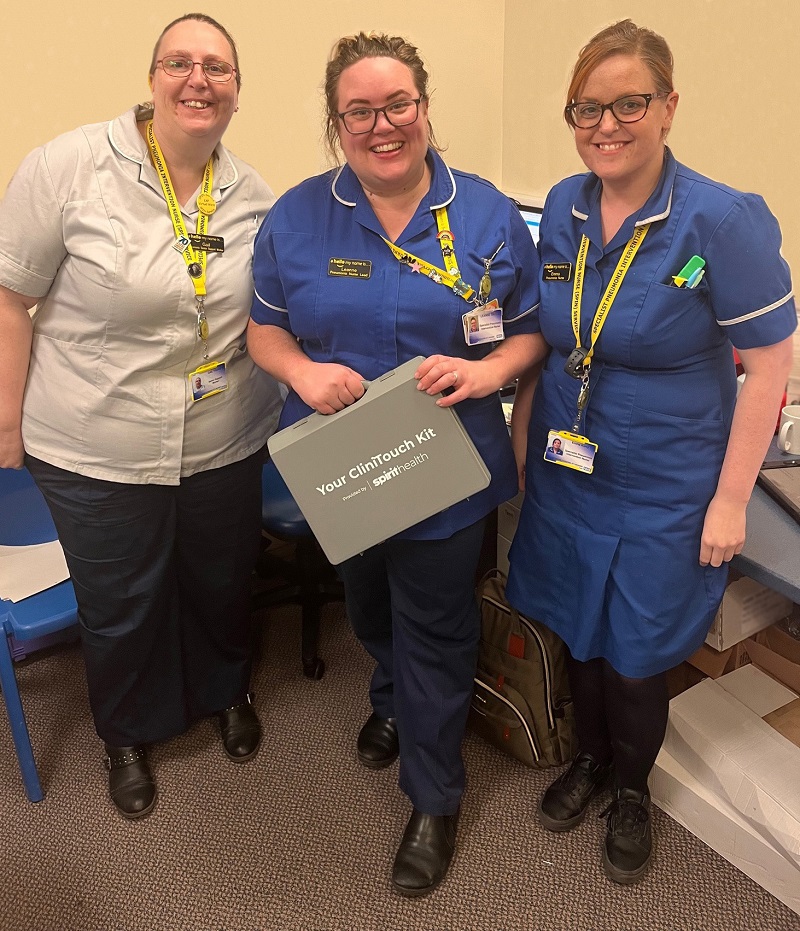A new community-acquired pneumonia (CAP) virtual ward has been launched, helping the NHS to support up to 160 more patients month.
Patients living within NHS Leicester, Leicestershire, and Rutland’s (LLR) integrated care system (ICS), which covers more than one million people, now have access to digital health support through the
Clinitouch app, a remote patient monitoring platform provided by Spirit Health.
The service will support those who develop pneumonia outside of hospital but are, or were, at risk of being admitted to hospital due to the severity of their condition.
Following their safe discharge from hospital, and having met specialist referral criteria, patients can continue to receive specialist, human-led care from the comfort of their own home on a virtual ward.
Within its first week of operation, the technology already supported eight patients to safely recover at home, thereby reducing their time spent in hospital.
Discussing his own experience on a virtual ward, 75-year-old Andrew Stafford said: “When I was first asked whether I would want to go on the virtual ward and be remotely monitored using Clinitouch, I thought I would give it a go.
Time to recover
“Each day I answered my questions and entered the information on Clinitouch knowing that the specialist pneumonia intervention nursing team would receive it and monitor me.
“The healthcare team explained it to me so well and, once I was set up, I liked being at home to recover.”
Between five and 10 people out of every 1,000 in the UK will develop pneumonia every year, and is more common in the autumn and winter.
At a critical time for the NHS battling continued winter pressures, the CAP virtual ward was co-designed with LLR specialist clinicians to create 40 additional NHS virtual beds, enabling more patients to receive the appropriate and timely treatment they need.
When patients are remotely monitored, they complete daily health questions related to pneumonia and take their vital signs using the Clinitouch app.
To provide their daily health answers and vital signs, patients are given a 4G-enabled tablet, and Bluetooth-enabled devices including a blood pressure monitor, a pulse oximeter, thermometer to use at home.
Remote monitoring
Patients also receive a full demonstration on how to use the equipment before they are discharged.
The data provided by patients is then shared in real time with the specialist pneumonia intervention nursing (SPIN) team, who remotely monitor the patients daily using the information the patients submit on the app.
If the patient’s health shows any signs of deterioration, the team can provide the appropriate interventions.
The community-acquired pneumonia pathway launch marks the latest milestone in a ground-breaking partnership which will see a total of 16 digital pathways launched across LLR.
This latest pathway joins the recently-launched asthma, COPD, and COVID-19 systems.
To support local and national NHS services, virtual wards have been identified by NHS England as a way of empowering clinicians to help them deliver the same levels of care to patients, while they safely continue their recovery within their own homes.
The service is monitored by the specialist pneumonia intervention nursing team (SPIN)
Safety at home
Leanne Small, SPIN lead, said: “Virtual wards help us to get patients with pneumonia home sooner than their estimated date of discharge.
“Being remotely monitored using Clinitouch has given them more confidence in their recovery at home.
“And the feedback we’ve had is that patients being in their own environment gives them more freedom. They can do their own things and be around the people they want to be around without the restrictions of a hospital setting.”
Dr Noel O’Kelly, medical director at Spirit Health, added: “The virtual ward was quickly deployed during the critical winter months where, usually, there are higher rates of pneumonia.
“This pathway is already helping to manage a number of patients safely at home and creating extra capacity during winter pressures in the NHS.
“By supplementing face-to-face services with clinician-led digital health technology, we can empower our health service to make the most of its resources, all while delivering the best-possible health outcomes for patients.”




